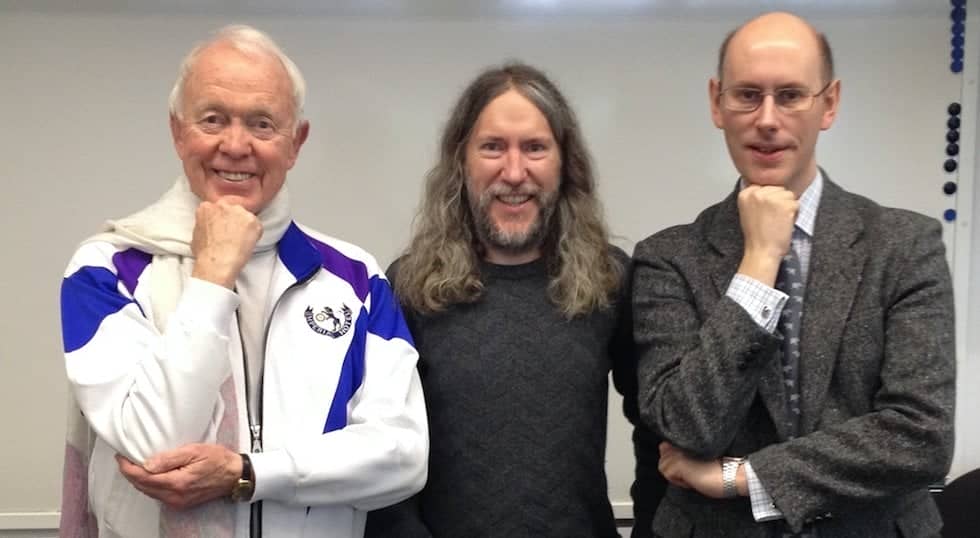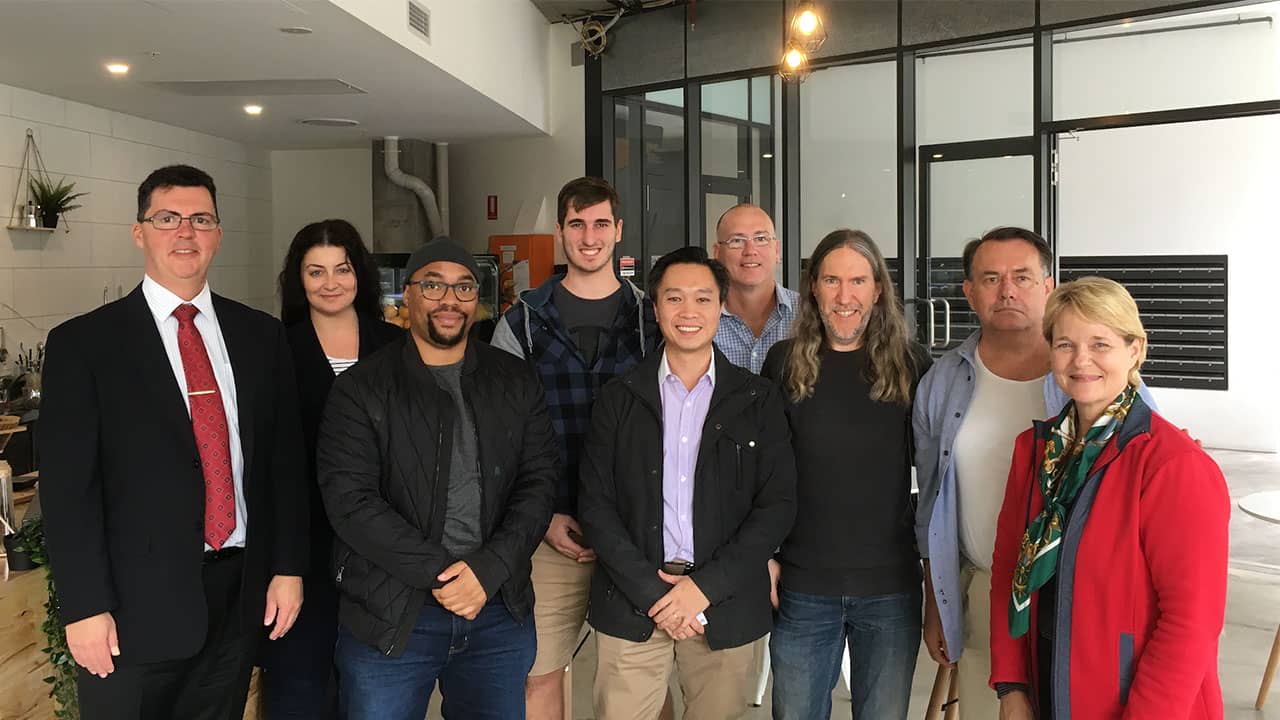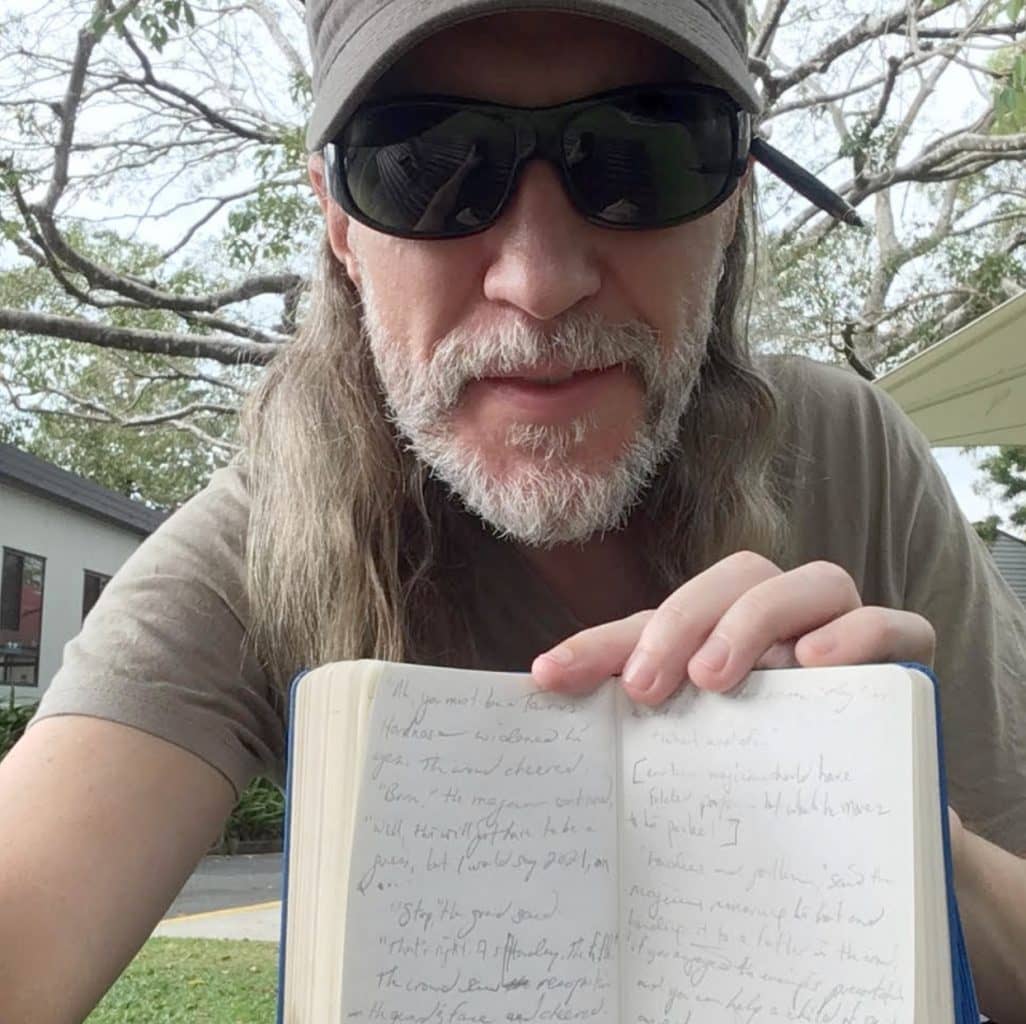Podcast: Download
Subscribe: Apple Podcasts | RSS
 Can you be both an autodidact and a polymath?
Can you be both an autodidact and a polymath?
Is there really a difference between the two?
The short answer is that you have to be autodidactic in order to be polymathic. At least to a certain degree.
If there’s an exception to this rule, I’m unaware of it – and I’ve been studying the fields of learning and memory for decades.
As you learn more about how to become both autodidactic and polymathic, I’ll share some examples that will help you better understand why these categories are tied at the hip.
And you’ll discover how to be both at the same time.
Ready?
Let’s dive in!
Autodidactic vs. Polymath:
A Detailed Guide On The Only Difference That Matters
What I’m about to say might sound arrogant.
However, please hear me out:
The only real difference between an autodidact and a polymath happens when an autodidact truly believes he or she has learned on their own.
Seriously.
How can anyone learn on their own? We need books written by others.
Those authors needed to learn how to read and write themselves.
This does not mean that you cannot “teach yourself” in a way that resembles the general meaning of autodidacticism.
But the standard definition of “learning without a teacher” simply doesn’t make sense. Someone had to create the learning material. Even if you’re Darwin and discovering the laws of nature behind the theory of evolution, someone else taught him language and the principles of science during his time.
It Comes Down To Personal Volition
If there is something special that autodidacts have that others do not, it’s their drive to take the reins of learning into their own hands.
In my previous posts on potentially improving your IQ and life lessons from people who enjoy higher IQ, we saw that at some level, you have to define your own goals. To a certain extent, you also have to personally define what meaning intelligence has for you.
That’s not to say you get to create your own definitions and categories. But we know from research presented by Nir Eyal and Duke University that making your own definitions and applying them to a crafted self-identity do lead to better memory and learning outcomes.
You just have to choose that you will do so. If you feel like you’re lacking in will, that’s okay. Give these mental strength exercises a try. I’ve personally found them incredibly empowering, and there’s another one for you in my TEDx Talk.
So Then… What Is An Autodidactic Polymath?
An autodidact is essentially someone who takes responsibility for learning in a holistic way from others – without necessarily needing their presence or hands-on guidance.
As it happens, there are some personality traits polymaths exhibit – and they can be adopted. An older way to find examples you can model involves looking up the concept of the Renaissance Man. Obviously, we no longer limit becoming a polymath to men only, but we also have to accept that people used these terms in this way in the past. (Some languages, like German, still use “Mann” to mean all humans, though this may change in the future.)
Some quick examples of autodidact polymaths you can look up now include:
- Ramon Llull
- Giordano Bruno
- Robert Fludd
- St. Augustine
- St. Aquinas
- Lynne Kelly
- Frances Yates
- Ben Cardall
- Phil Chambers
- Nelson Dellis
- Tony Buzan
In each of these cases, I’ve selected people who have also mastered memory techniques. In some cases, these people knew how to use visual memory techniques exceptionally. In others, they have aphantasia (lack of a mind’s eye) and approach learning a little bit differently.

In some of these cases, the autodidactic polymaths focused purely on mastering multiple topics in terms of “book knowledge.” In other cases, they learned to use action-based and analytical skills related to developing and running businesses.
How To Be An Autodidactic Polymath In Today’s World:
7 Tips You Can Implement Now
I believe everyone can become an autodidactic polymath.
Here are some of the simplest and most direct activities you can start pursuing whenever you’re ready to get started.
One: Commit To A Lifelong Journey
As John Michael Greer (another autodidactic polymath) points out in his excellent Druidry Handbook, “initiation” may mean beginning a learning project within a tradition.
But anything worth starting at this scale is really a lifelong project. In the case of Druidry, he suggests the commitment focus on “reshaping your relationship to the Earth.”
When it comes to becoming a autodidactic polymath, I suggest you commit to reshaping your commitment to the journey of lifelong learning. Be all in.
I know, I know. Saying something like “be all in” might ring like a cliche in some ears. But in my own lifelong study, I often remember Gilles Deleuze’s warning that “the war against cliche is a terrible thing.”
Sometimes we really need these cute little phrases to keep committed, one reason I’ve memorized so many simple cliches. And why I’ve memorized a bunch of Sanskrit phrases. Common or complex, personal mantras are very useful for keeping the mind committed to a life of study.
Two: Ditch The Myth Of Learning Styles
I’ve been teaching memory techniques through the Magnetic Memory Method Masterclass for over a decade. People often email to tell me that they are visual learners, auditory learners, kinesthetic learners, etc.
But according to the American Psychological Association, believing in learning styles may be detrimental. I’m convinced that it is worse than detrimental. I’ve seen it hold many people back.
Tesia Marshik’s TEDx Talk goes into further detail if you want to know more about this issue:
Although Professor Marshik believes they don’t exist at all, others have argued that the best thing is to downplay their importance.
I’m not sure there’s a right answer when it comes to institutionalized education. But when it comes to you and I as individual learners, the truth is that we cannot afford to focus on just one learning style.
We need to be aware of the many types of mental imagery we have to draw upon. And when we feel weak in a certain area, we need to find ways to strengthen them. Neuroplasticity studies demonstrate that you really can rewire your brain and anyone seeking polymathic and self-study abilities to the point of autodidacticism needs to embrace the evidence and take action accordingly.
Three: Become An Expert Reader & Researcher
A huge part of my Read with Momentum program helps learners quickly find the best possible information, read it and comprehend it.
I’m so glad I learned these skills in university and put them into action. With so much trash online about “speed reading,” it’s important that everyone know what really works when it comes to reading faster.
The lion’s share of reading at a steady clip boils down to two things:
- Choosing the best possible books to read in the first place (research)
- Having a vocabulary that supports dealing with the books you want to read
All of this also assumes that you have well-formed goals, which we’ll discuss next.
Four: Define Worthy Goals
A huge reason why many people flounder is that they don’t dream big enough. And when they do, they don’t dream about goals that are actually worth pursuing over the long term.
This is okay and mistakes happen. But the sooner you learn to rule out learning goals that aren’t worth pursuing in advance, the sooner you’ll get more out of the ones you do pursue.
Goal creation is its own skill and one of my favorite ways to formulate them involves mind mapping – especially mind mapping for business.
Five: Be Part Of A Larger Group
Remember how I said that there’s a mythical aspect to autodidacticism?
It’s the idea that anyone learns on their own.
In reality, we all need each other and participating in groups is essential. It helps in terms of getting rapid feedback and stimulates reflective thinking.
Even if you’re an introvert, being involved with other people is important. I used to be introverted too, but I worked on changing this. Although I’m not at all extroverted now, making sure I met and collaborated with others has been essential to my learning journey.
Please don’t skip this step.
Six: Keep Going – Even When The Going Gets Tough
It’s always been tempting to give up. And it probably always will be.
But people who learn continuously cannot afford the consequences of quitting. They need resilience, the ability to pivot where necessary and what boils down to habits based on systems. These help you keep going even when motivation fails – because it will fail.
If you’re wondering how it’s possible to keep learning without motivation, the answer really comes down to the word “systems.”
I can give many examples, but perhaps one of the strongest involves when I used The Freedom Journal to help me learn enough Chinese to make a surprise invitation to teach the Memory Palace technique in China as successful as possible.
Although I later went on to complete a certificate in Chinese, in this particular case, my motivation has never been very strong. So I set up systems to make sure I completed specific goals. True, my performance with this goal has only been “good enough” to my own personal standards, but sometimes that’s all that matters.
I’m sure glad I found out about systems so that I could put motivation aside and keep moving. Because in this case, there were many days I really didn’t feel like studying – but relying on systems helped me keep going anyway.
Six: Journal As If Your Life Depended On It
Although I have no particular special method of journaling to teach, since I started consistently doing it, my learning outcomes have improved.
Journaling helps partially with keeping consistent – it is part of having a system that is “motivation proof.”
And journaling helps make sure you engage in metacognition, which is thinking about how you’re thinking.
When it comes to memory improvement, Johannes Mallow is a great example of a self-taught mental athlete. His journaling tips are priceless. For a broader discussion of how I’ve journaled during my PhD studies and while developing my career as an author, you can also check out my best suggestions for keeping a journal.
Seven: Invest Experimentally In Your Education
Many people share with me their fears that investing in their memory might not be worth it.
I believe this is inherently false – or at least questionable.
Every educational experience is valuable. Even if you wind up not understanding something, or decide not to implement an idea or technique, you deserve kudos for being willing to expose yourself to the information.
So if you feel held back as a would-be autodidact with the intent to become polymathic, I suggest you think like an investor. Risk isn’t going away, but in this particular case, it’s not possible to waste your time. In the rare event that you really don’t find anything useful in a book or course, you’ll at least know that.
Even then, I suggest you keep an open mind. I can’t tell you the amount of times I’ve taken a second look at a book or course I originally dismissed.
Sometimes I feel foolish for my shortsightedness. But I quickly get over it because realizing the value that was there all along lets me get back to implementing the information and then learning some more from the next source.
Want To Become An Autodidactic Polymath? This Is The Ultimate Key
I’ve shared my best tips for learning multiple topics on your own, while also avoiding the myth that there really is any such thing as going it alone.
For best results, you’ll want to revisit all of these tips often. But if there’s one thing you should focus on above all, it’s improving your memory.
And once it’s improved, maintain for mental fitness.
Using the ancient memory techniques I teach is one fantastic way to do that. If you’d like more help, get my free course right here:
It walks you through the core accelerated learning techniques in just four videos and includes three powerful worksheets.
Although it’s not required, you might also like to add learning about memory science and the history of memory techniques as part of your journey.
Ultimately, it’s more important that your memory is as good as it can be. And I’m talking about all the types of memory you’re blessed with having.
Sadly, some people prefer to cherry pick and only want to improve one aspect of their memory, such as short term memory.
But not you. You won’t make that mistake because you’re committed to a lifelong adventure of learning based on principles that have been working for people for thousands of years.
Power to you!
Related Posts
- Stoic Secrets For Using Memory Techniques With Language Learning
Christopher Huff shares his Stoic secrets for using memory techniques when learning a language. You'll…
- The German Professor Who Defends Memory Techniques for Language Learning
This professor defends memorization techniques for learning foreign languages and has the science to prove…
- Memory Techniques For Chinese with Mandarin Blueprint
Mandarin Blueprint provides exceptional material for learning Chinese, including characters, pronunciation and the best memory…







